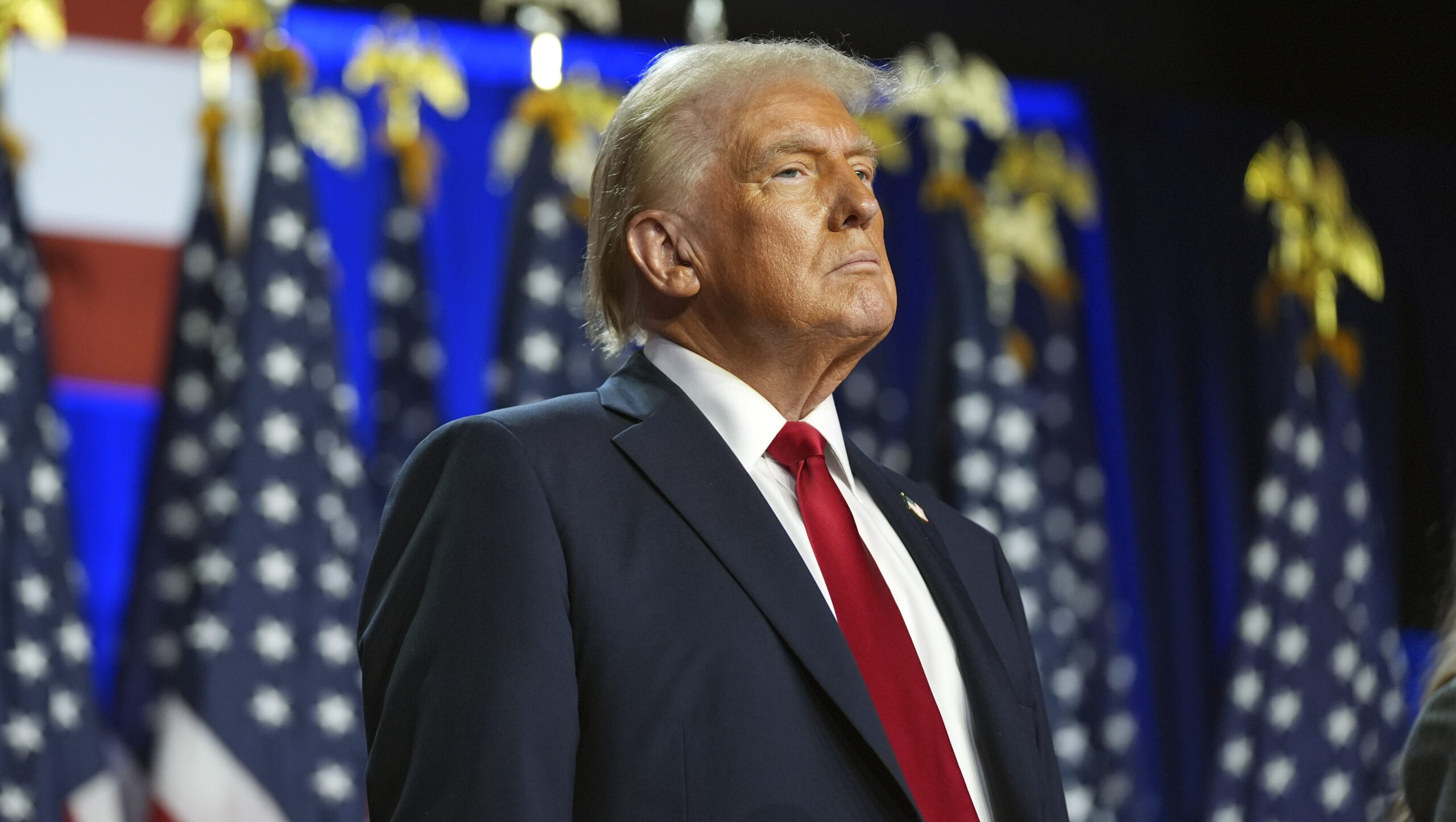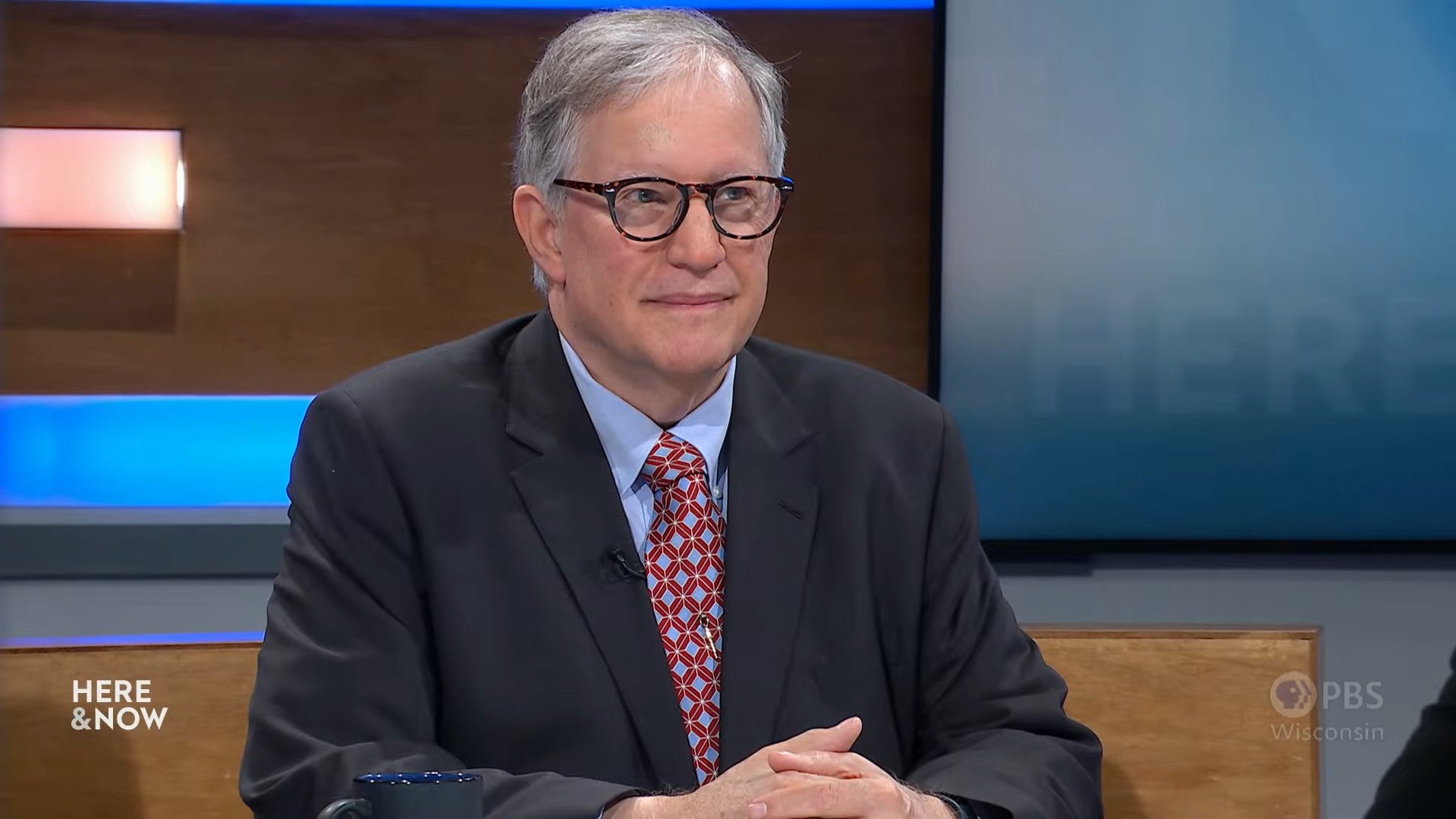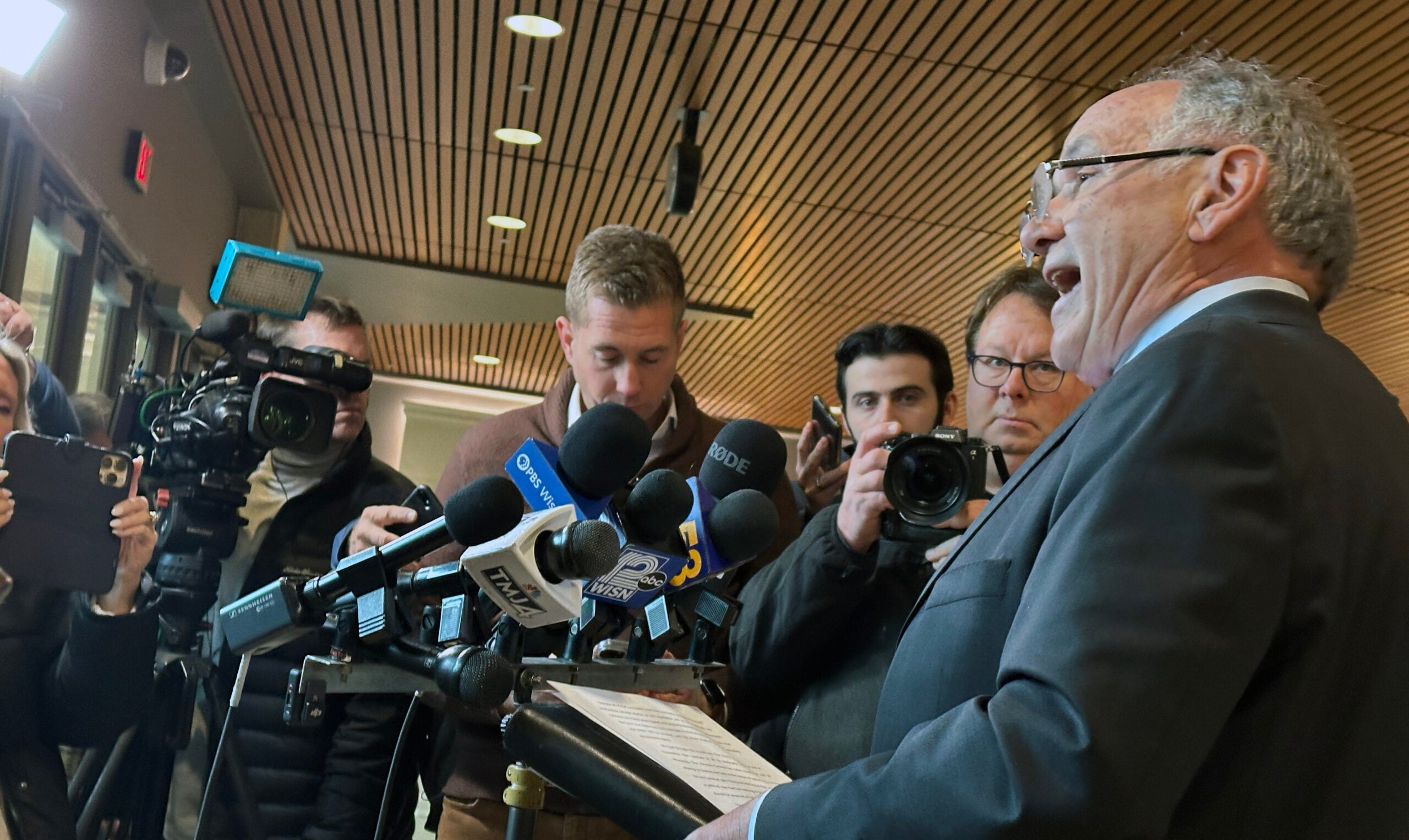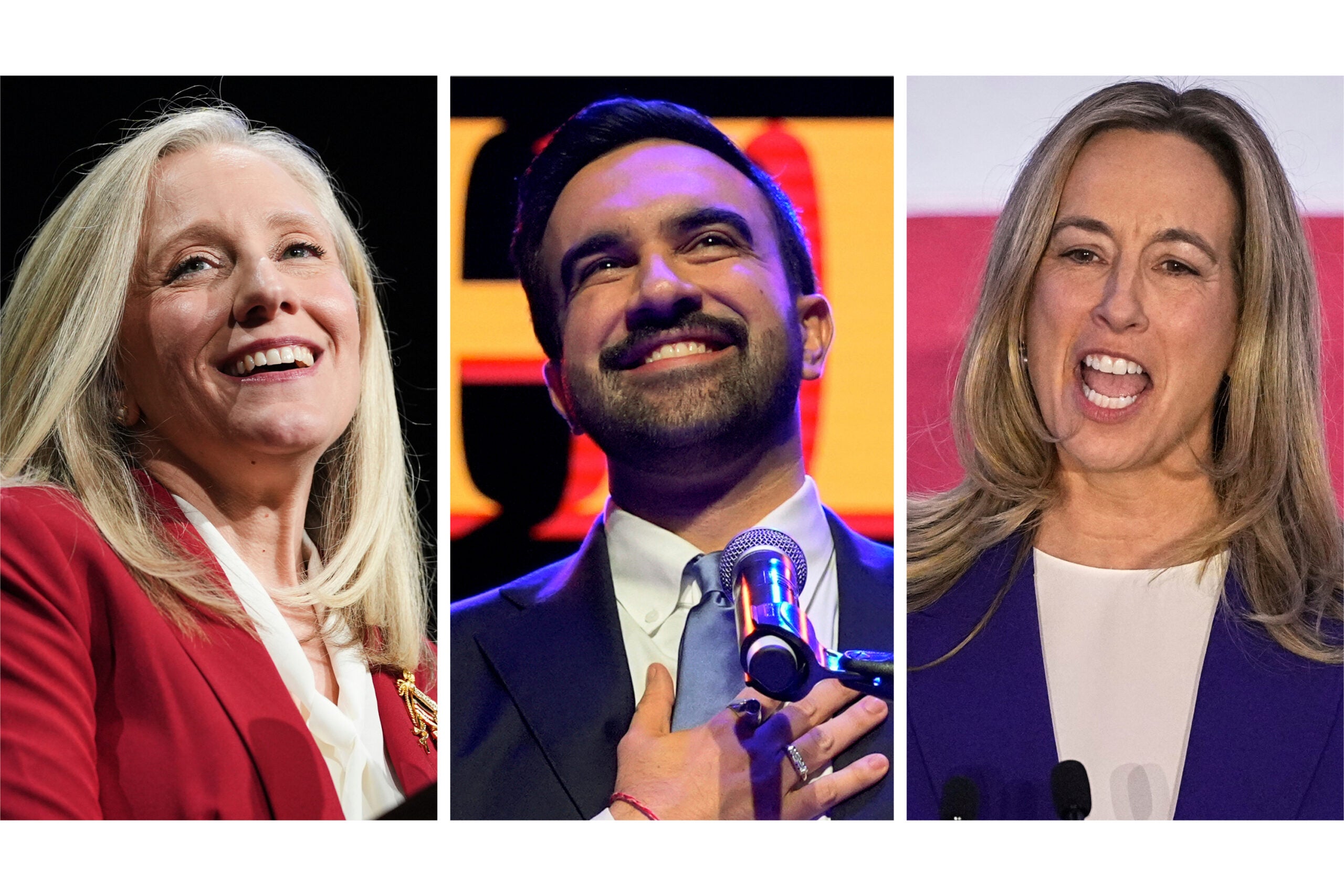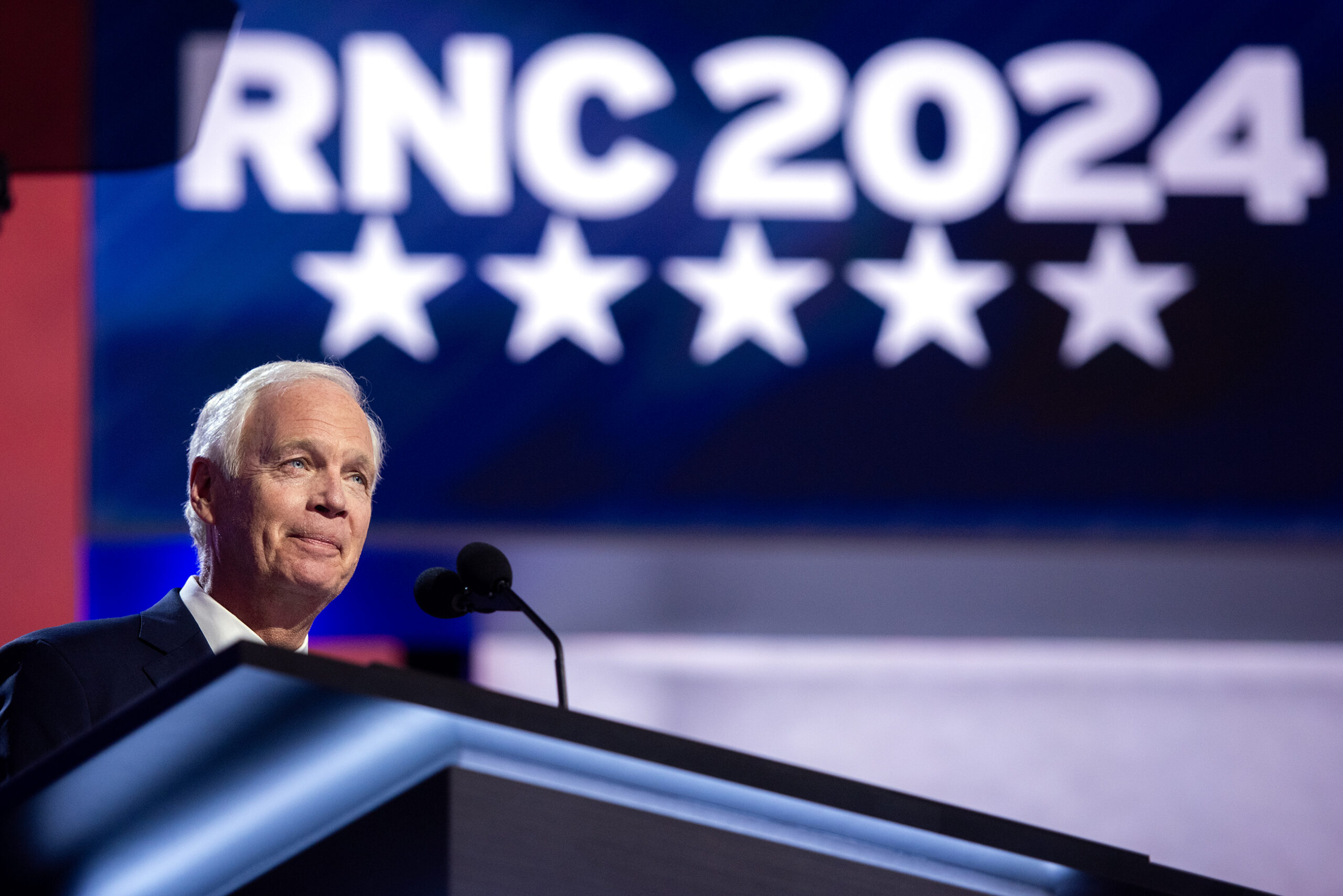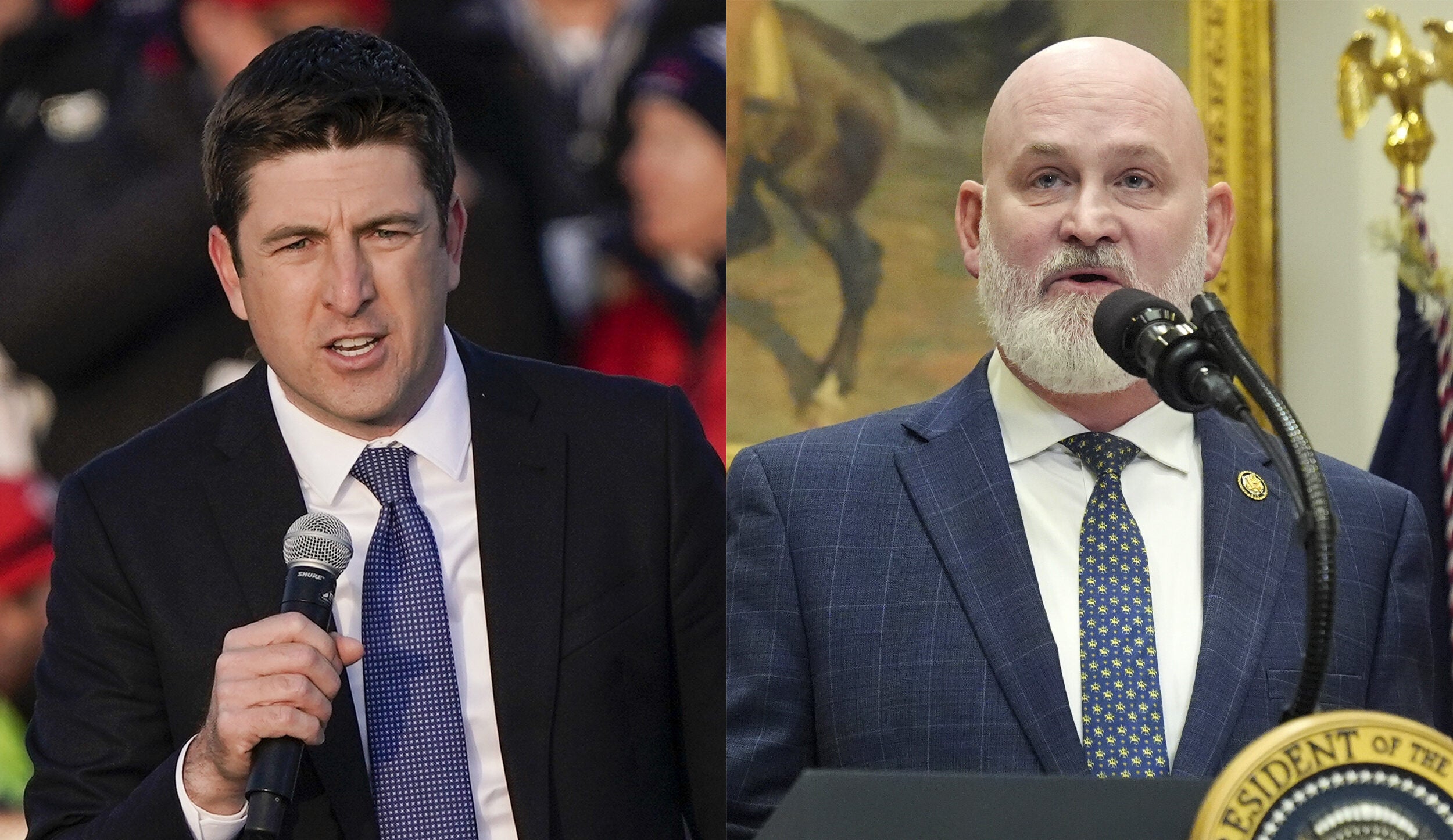Former President Donald Trump has won Wisconsin’s 10 electoral votes, marking just the second time since 1984 that a Republican presidential candidate has carried the state. The first was his shocking upset victory in 2016.
The win by Trump over Vice President Kamala Harris further establishes him as the defining force of Republican politics in Wisconsin, where the GOP has otherwise struggled to win statewide races since his rise to power eight years ago.
The Associated Press called the race shortly after 4:30 a.m. All results are unofficial until they’re certified in coming weeks.
News with a little more humanity
WPR’s “Wisconsin Today” newsletter keeps you connected to the state you love without feeling overwhelmed. No paywall. No agenda. No corporate filter.
Trump’s victory here follows one of the most unusual campaigns in U.S. history, with a frequent spotlight on Wisconsin.
Just days before Trump was set to visit Milwaukee to accept his party’s nomination at the Republican National Convention, an assassin attempted to kill him during a campaign rally in Pennsylvania, with a bullet grazing Trump’s ear. It led to heightened security at the RNC, where GOP activists and elected officials described the event in biblical terms, saying they believed Trump’s survival was a result of divine intervention.
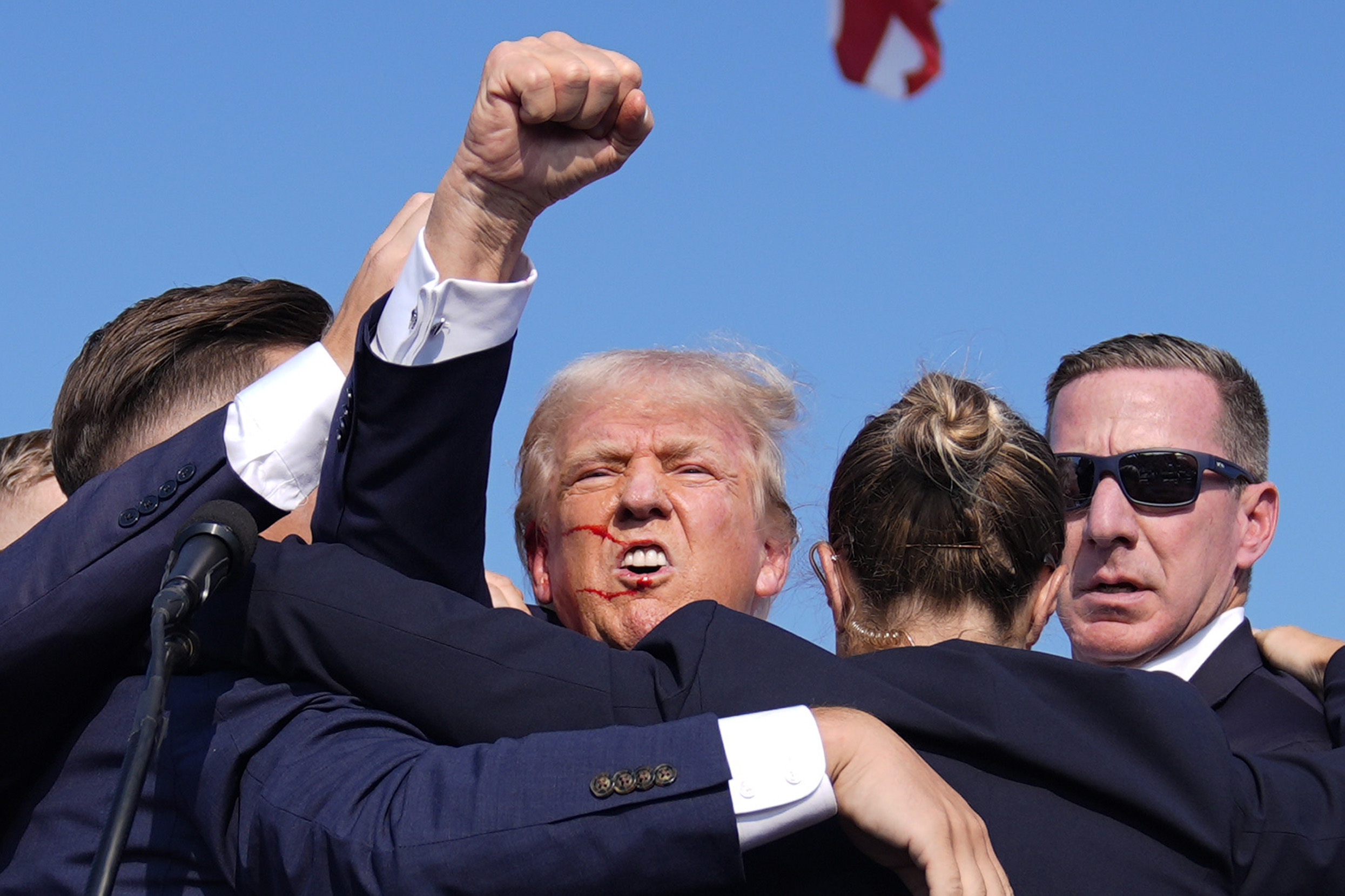
Trump recounted the events in his acceptance speech, and as the convention ended, it appeared the attempt on Trump’s life had galvanized his support among Republicans. There was also widespread belief that the 2024 election was Trump’s to lose, thanks in large part to dismal approval ratings for President Joe Biden, especially after his shaky debate performance against Trump on June 27.
Biden was Trump’s opponent until he ended his campaign on July 21 under pressure from a coalition of Democrats including swing state lawmakers like U.S. Rep. Mark Pocan, a Democrat from the town of Vermont in the Madison area.
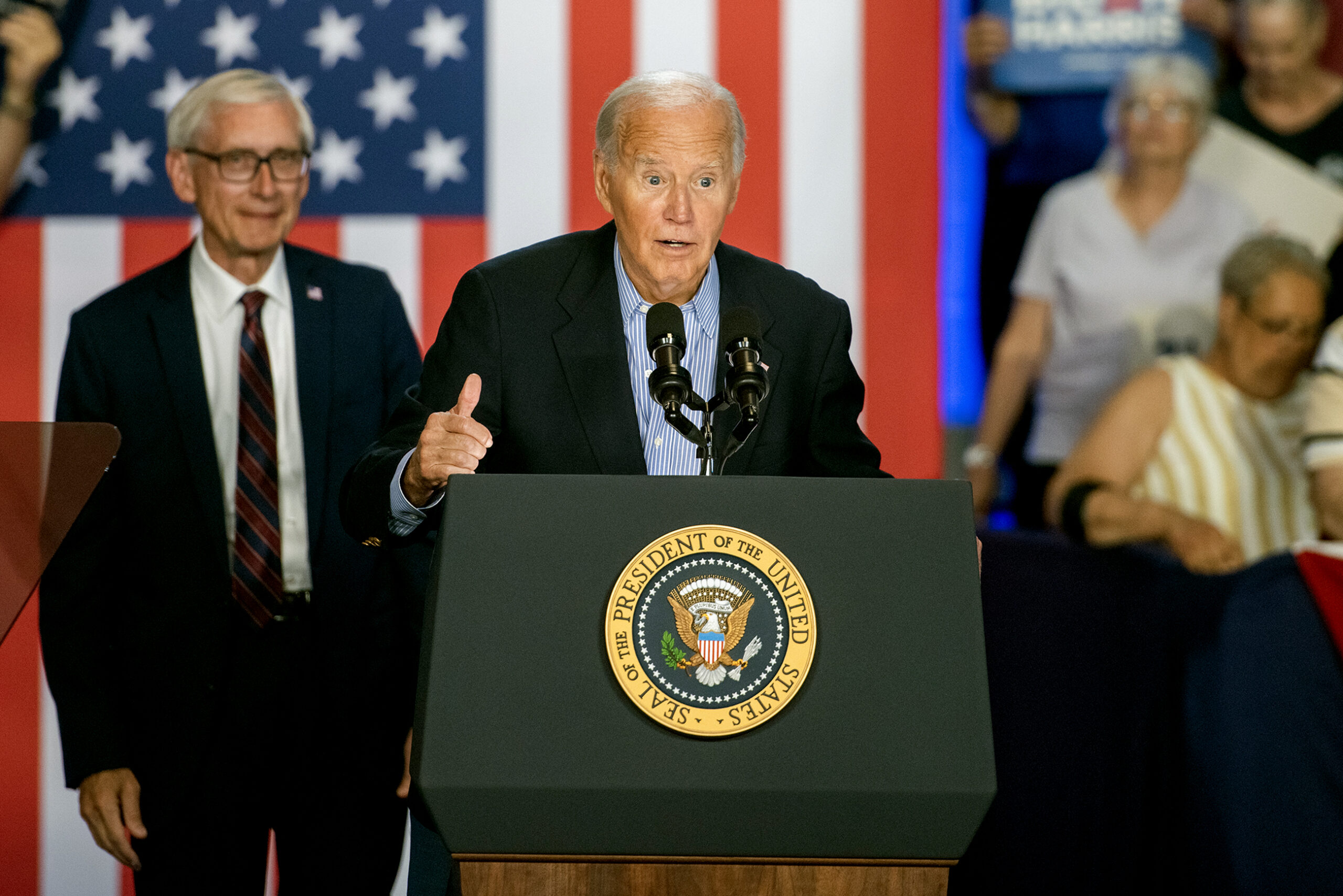
Democrats quickly rallied around Harris, and within a day, nearly every Wisconsin delegate to the Democratic National Convention had pledged to support her candidacy. Any talk of some type of a midsummer primary quickly vanished.
Harris made immediate and repeated appeals to Wisconsin voters. She held her first major campaign rally here as the presumptive nominee on July 23, speaking to a raucous crowd at the high school in West Allis, a left-leaning suburb in Milwaukee County. She visited Eau Claire on Aug. 7, a day after picking Minnesota Gov. Tim Walz to be her running mate.
And on Aug. 20, as the DNC was underway in Chicago, Harris and Walz held a simultaneous rally in Milwaukee, packing the Fiserv Forum where Trump had accepted his party’s nomination a month earlier.
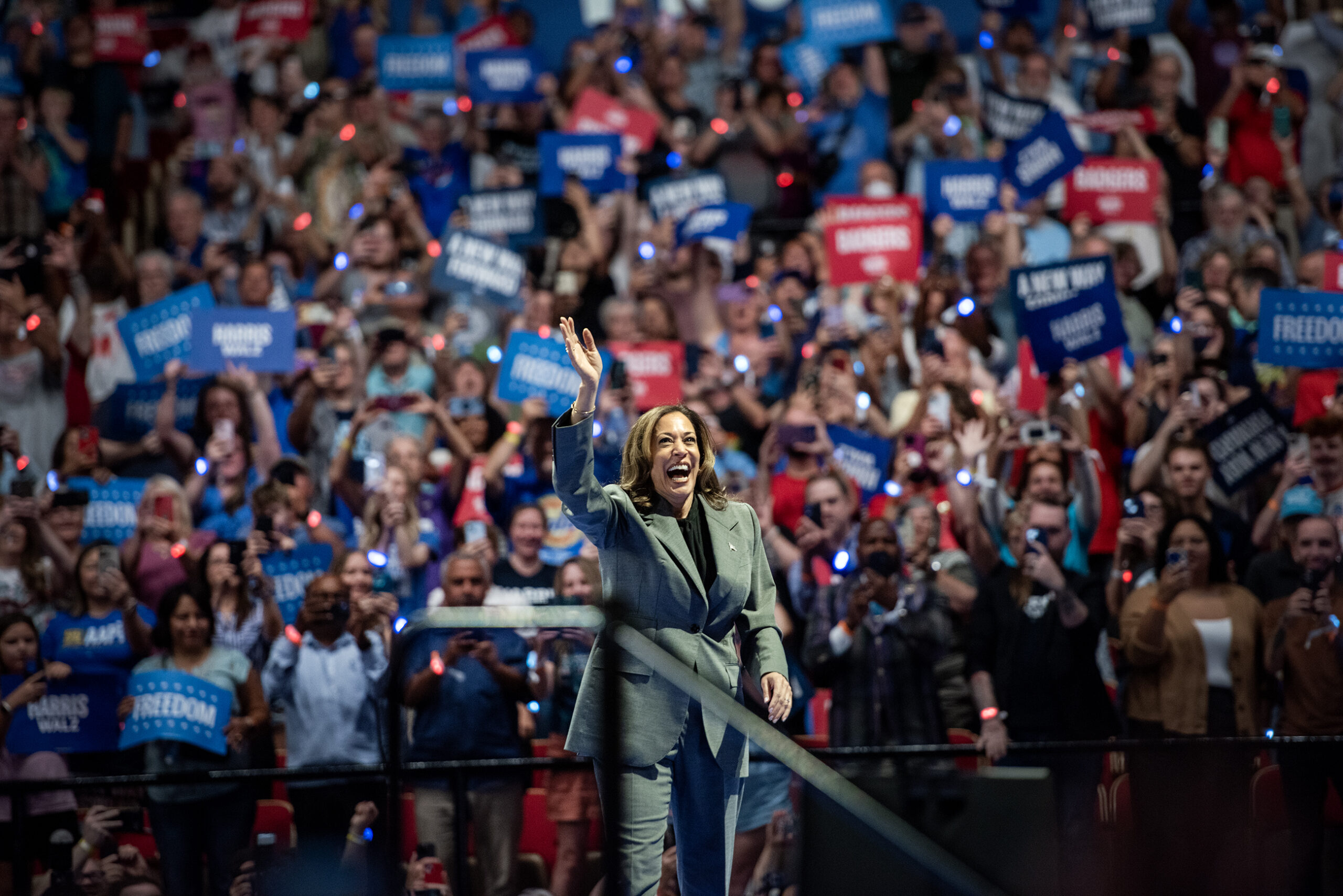
Along the way, Harris made appeals to voters Democrats viewed as critical to their Wisconsin coalition. Her campaign held rallies in deep blue Madison, hosting a concert late last month aimed at turning out young voters in a city that has fueled Wisconsin’s Democratic turnout engine.
She returned to the Milwaukee area in the closing days of the campaign, hosting another rally and concert at State Fair Park in West Allis where rap superstar Cardi B addressed the crowd.
On Sunday, former President Barack Obama made a last minute push in Milwaukee, a city where record Black turnout in his own elections helped him win lopsided victories statewide.
But Harris also made overt appeals to disaffected Republican voters, who’ve soured on the GOP in the era of Trump. She campaigned with former U.S. Rep. Liz Cheney, a Republican from Wyoming and the daughter of former Vice President Dick Cheney, who has described Trump as an existential danger to the country.
The two held events in Ripon, which bills itself as the birthplace of the Republican Party, and Waukesha County, the largest Republican county in the state where Democrats have been making inroads.
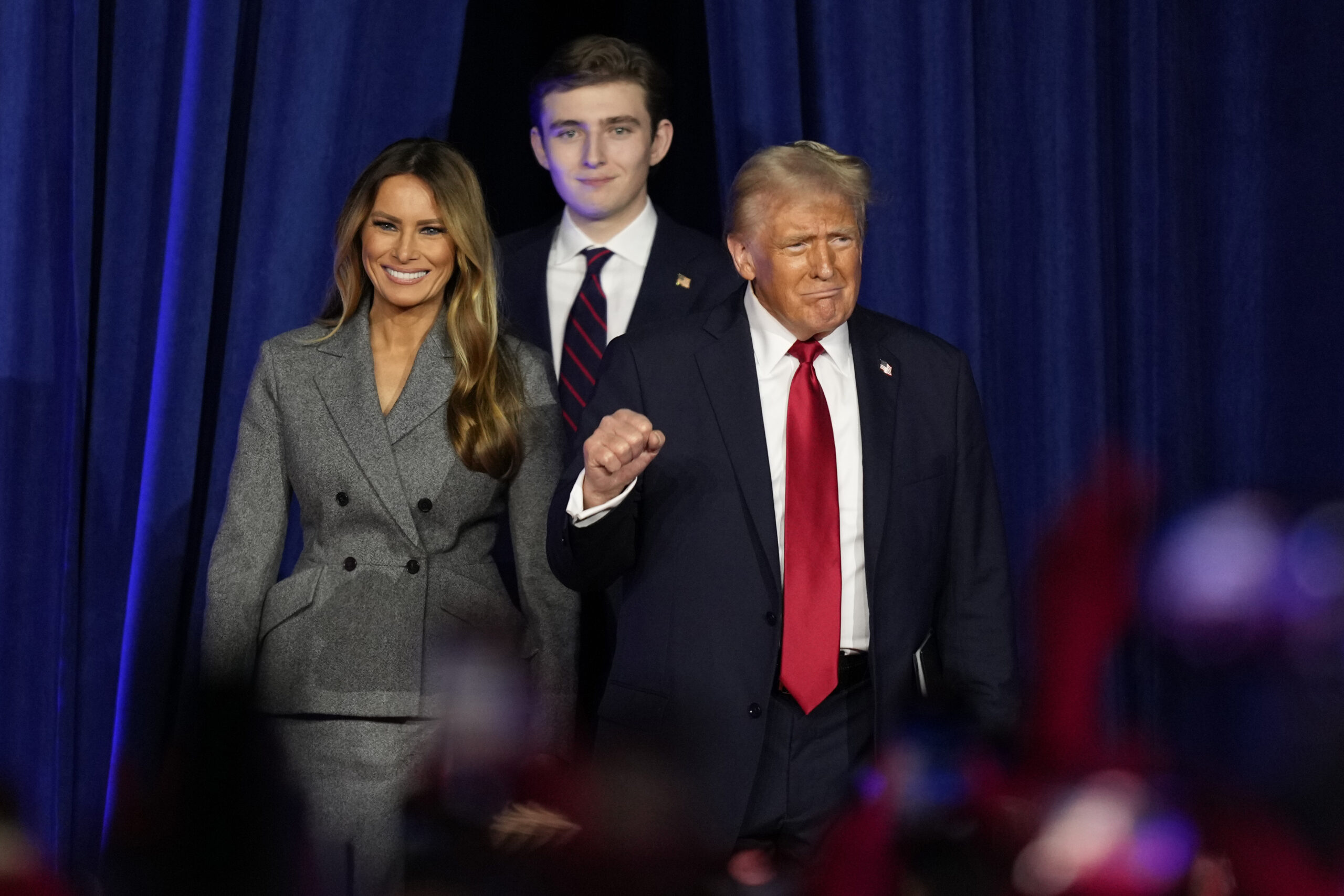

Trump was busy in Wisconsin, too. He made the usual GOP stops in places like Waukesha and Green Bay, but he also campaigned in Dane County in an effort to lose there by less. His final Wisconsin visit of the campaign was to the Fiserv Forum, where he claimed the economy “stinks” and promised to fix it if elected.
He was joined by independent presidential candidate Robert F. Kennedy, who urged the crowd to vote for Trump, even though Kennedy’s name appeared on Wiconsin’s presidential ballots.
In the end, Trump’s campaign, and his coalition, won the day. Preliminary returns suggest he won overwhelming support in Wisconsin’s rural counties and did well enough in the suburbs to carry him to victory.
While the outcome of the race was in doubt to the very end, there were broad factors at play that favored Trump. Poll after poll listed the economy as a top concern for voters, which is historically a bad sign for the party that controls the White House.
With the benefit of hindsight, one question included on the Marquette University Law School survey for years was especially telling. When Marquette asked likely voters about their family’s financial situation, just 44 percent said they were living comfortably, down from 67 percent four years ago.
The final Marquette poll before the election also showed Harris leading in Wisconsin by 1 percent, another potentially dubious sign for Democrats given the survey’s history of undercounting Trump voters on races when he’s on the ballot.
In 2020, Marquette’s final poll showed Biden leading by 5 in Wisconsin, but Biden won the state by less than 1 percent. In 2016, the final Marquette poll showed Hillary Clinton leading by 6, but Trump narrowly won.
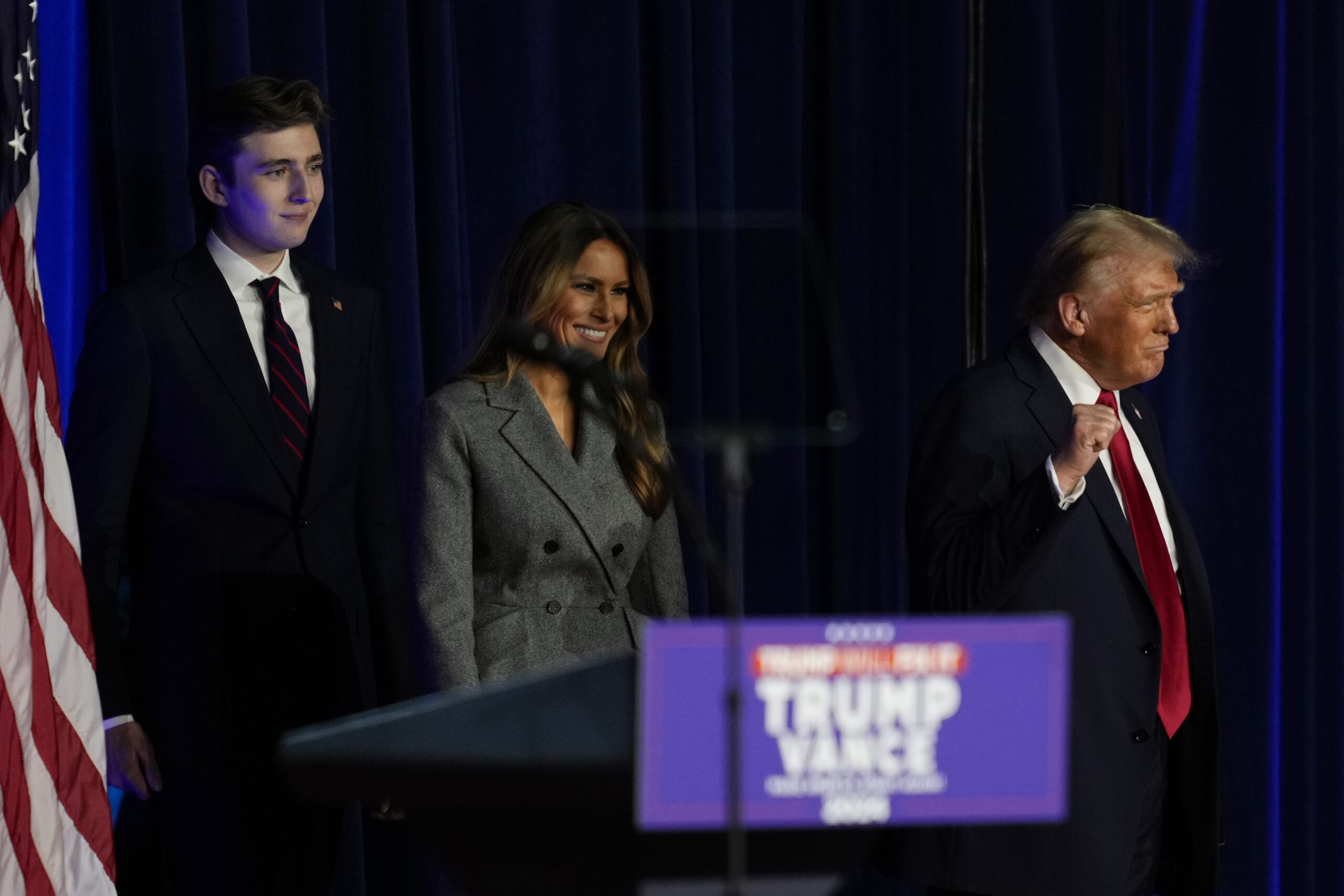
Trump’s victory snaps a bit of a dry spell for Wisconsin Republicans in statewide races. Following his 2016 victory, Republicans lost races for governor in 2018 and 2022 along with several other statewide elections. Their favored candidate also lost three-out-of-four Supreme Court races over a five-year period that saw the ideological balance of the court flip from conservative to liberal.
Now, bookending those GOP losses, and Trump’s defeat in 2020, are two GOP victories for president in Wisconsin, which hadn’t gone Republican prior to Trump since former President Ronald Reagan’s win in 1984. Decades passed since Reagan’s victory, and while other Republicans came close to carrying Wisconsin, only Trump was able to do it.
Editor’s note: this story has been updated to reflect that in 2020 President Joe Biden won Wisconsin by a margin of less than 1 percent.
Wisconsin Public Radio, © Copyright 2025, Board of Regents of the University of Wisconsin System and Wisconsin Educational Communications Board.

